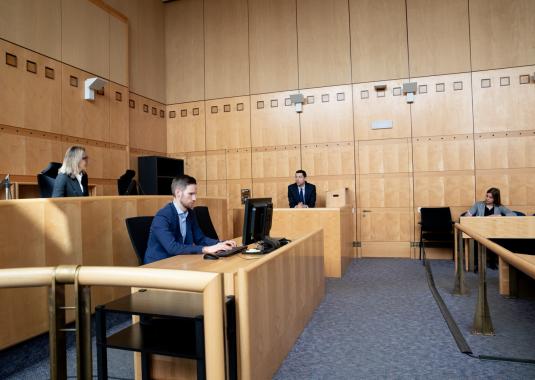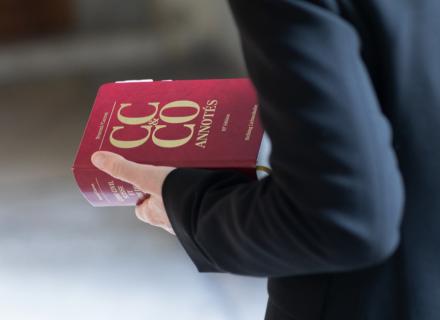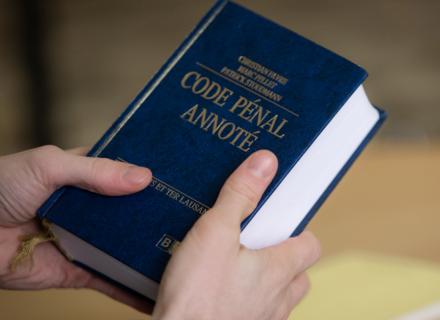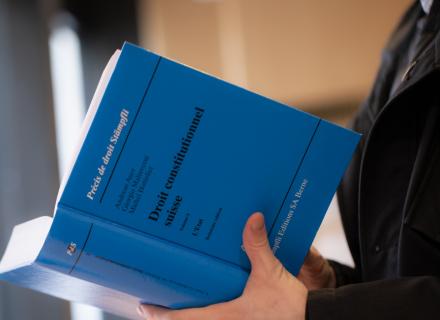Contacts
Address
Cour civile and Cour pénale
Desk-telephone
Opening hours
8h-12h / 14h-16h
Cour civile
Cour pénale
Mailing address
Cours civile et pénale
Case postale 3108
1211 Genève 3
Cour de droit public
Desk-telephone
Opening hours
8h-12h / 13h30-16h
Chambre constitutionnelle
Chambre administrative
Chambre des assurances sociales
Mailing address
Cour de droit public
Rue de Saint-Léger 10
1205 Genève
Chambre constitutionnelle
Case postale 1956
1211 Genève 1
Chambre administrative
Case postale 1956
1211 Genève 1
Chambre des assurances sociales
Case postale 1955
1211 Genève 1
Presidency and directorate
-
Mr. Cédric-Laurent MICHEL
President of the Cour de justice
-

Mr. David CAMINO
Director
Mrs. Verena PEDRAZZINI RIZZI
Vice-president of the Cour de justice, president of the Cour civile
Mr. Jean-Marc VERNIORY
Vice-president of the Cour de justice, president of the Cour de droit public
Mrs. Gaëlle VAN HOVE
Vice-president of the Cour de justice, president of the Cour pénale
Cour civile
By decisions of February 24, 2012, January 25, 2013, and December 17, 2021, the plenum of judges of the Cour civile decided on the following delegation:
- Decisions under articles 265 para. 1 and 3, 315 para. 4 and 5, 325 para. 2 and 331 para. 2 CPC, including the provision of securities, may be taken by the president of the chamber concerned or by his/her substitute.
Cour pénale
It is made up of:
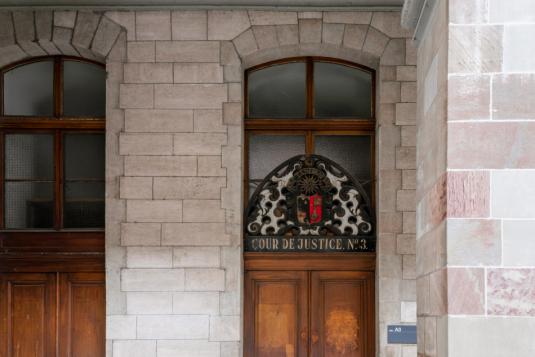
Cour de droit public
Application forms
Cour civile
Questions/answers
Cour civile de la Cour de justice
- In civil proceedings, hearings are public with 3 exceptions: hearings pertaining to family law are not public; the court may order that hearings be held in a closed session when a private or public interest requires it; hearings in conciliation proceedings are never public.
- In criminal proceedings, the hearings of the Chambre pénale d'appel et de révision are in principle public while those of the Chambre pénale de recours are not.
In civil matters, the parties can generally be represented by their lawyer. However, they are required to appear personally in 2 cases: when the court has expressly ordered it and at conciliation hearings.
At conciliation hearings, however, the parties may be represented when they are domiciled outside the canton or when they are prevented from appearing due to illness, age or other good reasons.
Please note: the presence of minor children who have not been summoned (even babies) is only allowed in court with the agreement of the judge.
In civil matters, yes, because the minor child must be represented by his/her legal representative. Exceptionally, the child can act without the assistance of his/her legal representative if he/she is exercising a strictly personal right.
Yes, in the following cases:
- At the stage of conciliation
- At any stage of the proceedings, if the hearing is public
Cour pénale de la Cour de justice
- In civil proceedings, hearings are public with 3 exceptions: hearings pertaining to family law are not public; the court may order that hearings be held in a closed session when a private or public interest requires it; hearings in conciliation proceedings are never public.
- In criminal proceedings, the hearings of the Chambre pénale d'appel et de révision are in principle public while those of the Chambre pénale de recours are not.
Yes, there is an obligation to appear, under penalty of being punished with a fine or being brought by the police before the competent authority.
If the accused is an appellant and does not appear at the hearing, without a valid excuse, it will be considered that he/she has waived his/her right to appeal.
The accused may, on request, be authorised to be represented by a legal agent.
The private claimant may, upon request, be allowed not to appear at the hearing.
If the private claimant is an appellant and does not appear at the hearing, it will be considered that he/she has waived his/her right to appeal.
He/she may, on request, be authorised to be represented by a legal agent.
Yes, by immediately informing the authority of the reasons for the impediment (travel abroad, illness, hospitalisation, etc.) and presenting any supporting documents (copy of airline ticket, hotel reservation, medical certificate, etc.).
Victims within the meaning of the law may be accompanied by a person of trust, even if the hearing takes place behind closed doors.
In case of a closed court session, the accused and the private claimant may also be accompanied by up to 3 persons of trust.
The same applies to witnesses, private claimants or accused persons who are granted protective measures.
The person of trust must not be likely to be heard as a witness in the same proceedings.
An accused minor and his/her legal representatives are required to appear personally at the proceedings unless they have been exempted from doing so.
The child victim must be accompanied or represented by at least one of his/her parents or by a guardian.
The witness minor child must be accompanied by at least one of his/her parents.
The costs of the proceedings are borne by the parties insofar as they have won or failed (lost the case). The party whose appeal is inadmissible or who withdraws the appeal is deemed to have lost the case.
The costs of the appeal proceeding are borne by the unsuccessful party (losing the case). The party whose appeal is inadmissible or who withdraws the appeal is also considered to have lost the case.
The Chambre pénale de recours may require the private claimant to provide security (guarantees) to cover potential costs and damages in the appeal proceeding.
If the required guarantees are not provided within the time limit, the appeal will not be processed.
The appeal must contain, on penalty of inadmissibility: the designation of the contested decision, the contested points of the decision, the reasons for requiring another decision (the arguments) and any supporting evidence.
The grounds for the appeal must be entirely contained in the act itself and may not be supplemented or corrected subsequently.
No, the appeal must be written in french.
Cour de droit de public de la Cour de justice
Parties whose examination has been ordered must appear in person; legal entities must appoint a representative.
Even when the examination has not been ordered, it is advisable to attend hearings held before the Chambre des assurances sociales de la Cour de justice in person.
Witnesses are required to appear personally.

